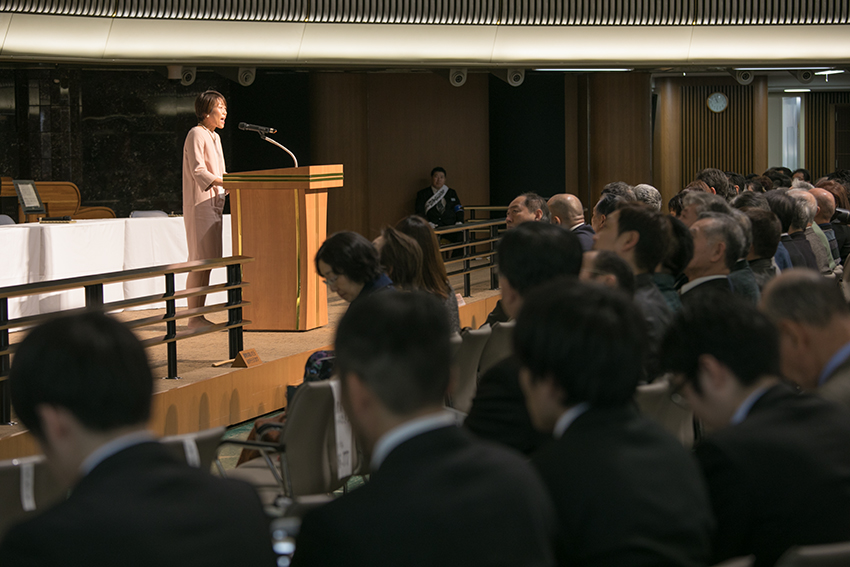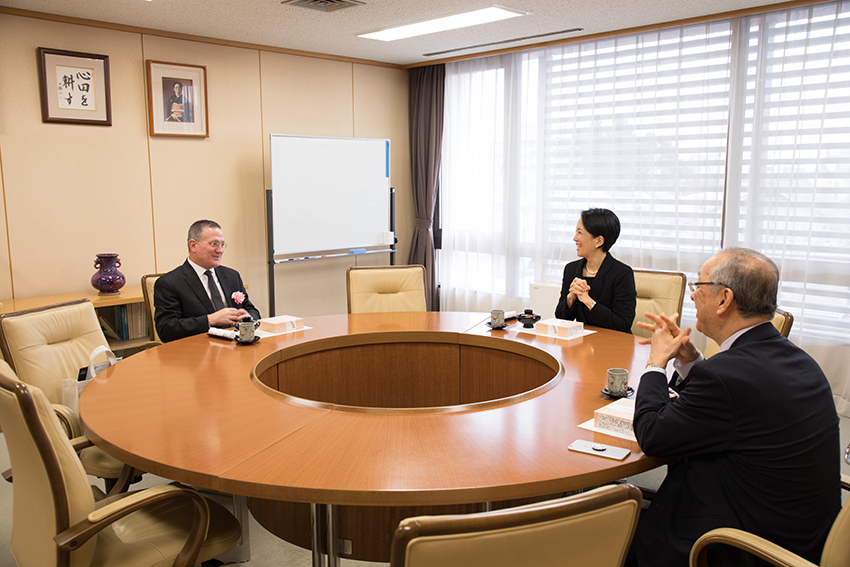
Photo: Kakuma refugee camp, Kenya – May 2018 : South Sudanese refugee practicing carpentry in Don Bosco vocational training centre in Kakuma refugee camp. Empowering refugees through practical skills. Don Bosco Kakuma belongs to the world wide society of Salesians of Don Bosco founded by St. John Bosco (1815-1888) in Italy which today operates in about 140 countries. The main activities of their works are geared towards the human and intellectual formation of young people. (Photo credit: Adriana Mahdalova)
by Brian J. Grim
Business, religion and refugees are connected in al least three important ways. First, religion is a motivator to help others, and by definition, refugees are in need of help. Second, because religion is an important aspect in the vast majority of refugees’ lives, businesses will be more successful if the workplace safeguards religious diversity, equity and inclusion. And third, refugees as well as immigrants from minority religious faiths often have the drive and ingenuity to create new, innovative and socially impactful businesses.
1. Religion is a Motivator to Help Others
Much of the work to resettle refugees in a new country requires more than money. It requires community support and loving neighbors.
For example, a 25-strong team from St Monica’s Parish, Flixton, Salford (near Manchester, U.K.), was the first Catholic parish to welcome a Syrian family to be resettled in the UK under the Government’s Community Sponsorship scheme. The scheme allows parishes and community groups to welcome, house and support refugee families looking to rebuild their lives in the UK.
Sean Ryan, employed by Caritas Salford to support the scheme’s uptake by parishes in the North-West and then nationally by Caritas Social Action Network, was awarded an MBE for his work. Commenting on this honour, Phil McCarthy said: “This richly deserved honour recognises the work that Sean has done to answer the call of Pope Francis to Catholic communities to welcome refugees.”
Resettlement in U.S. is Heavily Faith-based
Stephanie J. Nawyn, Associate Professor of Sociology at Michigan State University, notes that working directly with the U.S. government on refugee resettlement, there are nine national voluntary agencies, six or which are faith-based. One is Jewish, one Catholic, one evangelical Christian and three are mainline Protestant.
“These groups arrange for refugees to find housing, land jobs and enroll in English classes. They do so regardless of the newcomers’ own religions or their countries of origin. In my research,” Nawyn states, “I have found that staff at faith-based organizations commonly use religious rhetoric to justify their work and to describe their commitment to that work. At the same time, religiously based refugee organizations frame their efforts using interfaith language. They invoke the ethical imperative to provide asylum and refuge in ways that cross-cut multiple religious traditions as they collect and disburse money and household goods – and mobilize volunteers.”
Salem’s Sparrow Furniture gives refugees jobs, help adjusting to American life
After six years working in Jordan, Sparrow Furniture founder Luke Glaze returned Oregon and set up the company to operate under the 501c3 of Salem Alliance Church, Portland. Glaze and his wife had started a similar company in Jordan that employed people to make a business out of recycling.
“My heart was just burdened by the need of the people,” Glaze said.
Glaze combined his business know-how with his passion to help international refugees, and partnered with Salem Alliance Church to run a social impact business. Sparrow Furniture gives refugees jobs and helps them live an American life.
Watch the more on the Sparrow website.
2. A Faith-friendly Workplace is Good for the Bottom Line
 Analysis by the Pew research Center shows that refugees are far more religiously affiliated than either Europe or the U.S.
Analysis by the Pew research Center shows that refugees are far more religiously affiliated than either Europe or the U.S.
For instance, as shown in the chart, in 2016 virtually all refugees entering the U.S. were religiously affiliated, compared with fewer than 80 percent of the general population.
That means that as workplaces seek to integrate refugees, they will be more religious, especially because the countries they’ve come from were more defined by religion. And many are refugees because they were either persecuted for their faith or were driven out by religion-related conflict. Therefore, having workplaces that are sensitive to religion is important.
This actually is something businesses are coming to realize. Studies show that the most successful businesses encourage an environment in which employees can bring their “full self” to work. Employees need to feel comfortable, willing, and able to talk about what is most important to them. Employers benefit when they recognize and respect an employee’s religious identity, including their beliefs and practices.
In today’s increasingly competitive global business environment, companies will need to draw upon the unique talent and diverse experience of every employee. Employees that feel free to bring their entire self and identify to work demonstrate higher levels of innovation, creativity, and positive working environments, directly affecting business success. On the other hand, organizations that have environments of exclusion, intentional or not, risk excluding the next great business solution, the next great product idea, or talent retention.
As companies globalize, they’ll need employees who can relate to the daily experience of increasingly diverse customers. For billions of potential customers, including in the world’s fastest-growing economies, religious belief and practice are a part of daily life. Having employees who understand the ways religion manifests in private and public life will help companies avoid costly missteps and develop products and services better tailored to customer needs, and an essential part of being competitive.
See RFBF’s website for resources helping companies embrace religious diversity.

3. Religious Minorities often drive innovation and socially impactful business
Many refugees are entrepreneurs, having been business owners in their country of origin or having entrepreneurial skills to start or expand a business activity in their host country, according to UNHCR. And since over 95 per cent of the world’s businesses are small, medium or micro-sized enterprises, there is a tremendous opportunity for refugees to innovate and help drive economic growth, income and employment opportunities worldwide.
Some refugees have started massively successful companies. Daniel Aaron was a refugee from Nazi Germany and an orphan who went on to become one of the founders of Comcast. Comcast is the second-largest broadcasting and cable television company in the world by revenue and the largest pay-TV company, the largest cable TV company and largest home Internet service provider in the United States, and the nation’s third-largest home telephone service provider.
Refugees Are a Great Investment
Philippe Legrain, writing in FP, provides a compelling case for the economic contributions of immigrants and refugees, ranging from providing willing labor to being some of the most innovative business leaders:
“Google co-founder Sergey Brin was a child refugee from the Soviet Union. WhatsApp co-founder Jan Koum and PayPal co-founder Max Levchin were refugees from Ukraine. The late Andy Grove, who helped start and was later CEO of Intel, fled from communist Hungary. So, too, did hedge-fund manager and philanthropist George Soros; Thomas Peterffy, the founder of Interactive Brokers Group; and Steven Udvar-Hazy, the founder of Air Lease Corp.”
“The biological father of the late Steve Jobs, the co-founder and legendary CEO of Apple, America’s most valuable company, was a Syrian who fled his country for political reasons.”
“eBay was founded by an Iranian-American, Pierre Omidyar. At Chobani, the company that makes America’s leading brand of Greek yogurt, three in 10 employees are refugees. Chobani founder Hamdi Ulukaya [a Turk, not a Greek] doesn’t just employ them to do good; it also turns out to be good for the bottom line.”
Ulukaya said that he left Turkey due to the Turkish state’s oppression of its Kurdish minority group, of which he is a member.



















